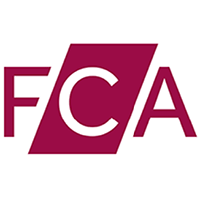Regulation is one of the main things in any financial market, be that stocks, commodities, indices, or Forex. The opinions about regulation are always polarized: some think there’s too much of it, and others say there’s too little. But no one argues the fact that oversight over the markets is needed; otherwise, the scammers would run rampant and the global economy would be in shambles.
Regulation is a set of rules that governs a given financial market. In our instance, it’s the foreign currency market or Forex. Due to the fact that it’s the largest playground for speculators in the world (the capitalization of the Forex market amounts to nearly $4 trillion), there’s a need for sentinels - autonomous entities dubbed “regulators'' to keep the industry running smoothly.
Forex-brokers.org reviews top Forex regulators of 2023, having divided them into four classes (A, B, C, and D) according to such qualities as compliance with the legal framework in a given jurisdiction, the demands regarding the size of operating capital, the ease of broker application approval, the availability of compensation scheme and the size of it, the degree of punishment for violating the rules. Each broker class has its advantages and disadvantages which we have also highlighted. We are not shilling for any particular broker or regulator but giving away honest opinions about the regulatory bodies that are keeping the industry in check.
Class A regulators - the strictest of the bunch
The National Futures Association (NFA)
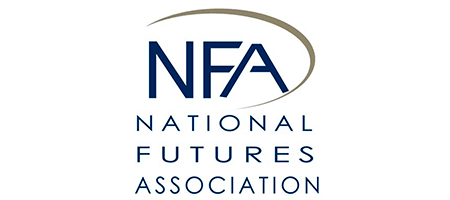 The United States is home to arguably the largest number of financial institutions (investment banks, hedge funds) and retail investors who regularly trade foreign currency markets. It is also known for having one of the strictest regulatory requirements when it comes to licensing Forex brokers and overseeing their operations. The impact of the Federal Reserve System (Fed) or the Securities and Exchange Commission (SEC) spreads across the US and beyond. But here we’d like to pay particular attention to the National Futures Association (NFA). The NFA is an architect of regulatory frameworks for derivatives markets, including Forex.
The United States is home to arguably the largest number of financial institutions (investment banks, hedge funds) and retail investors who regularly trade foreign currency markets. It is also known for having one of the strictest regulatory requirements when it comes to licensing Forex brokers and overseeing their operations. The impact of the Federal Reserve System (Fed) or the Securities and Exchange Commission (SEC) spreads across the US and beyond. But here we’d like to pay particular attention to the National Futures Association (NFA). The NFA is an architect of regulatory frameworks for derivatives markets, including Forex.
The self-regulatory organization carries out the following functions:
- Does due diligence and licensing of FX brokers;
- Ensures that the broker complies with capital requirements - the minimum of $20 million;
- Sees that the broker does proper record-keeping and reporting;
- Detects and counters illegal schemes;
- Resolves disputes through the NFA arbitration program.
The NFA licenses Forex brokers on behalf of the Commodities Futures Trading Commission (CFTC); therefore, the “middleman” has to follow both regulators’ guidelines. This is the reason why it’s tough to get a broker license in the United States, but also why most US-based brokers are very reliable. Just2Trade is among the top Forex brokers regulated by the NFA.
Forex Brokers regulated by The National Futures Association (NFA):
Financial Services Agency (JFSA) of Japan
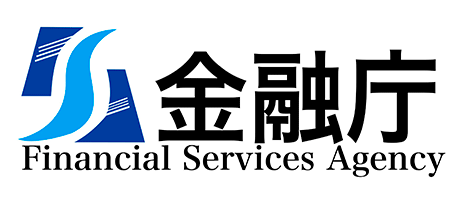 The Forex industry in Japan is unique in a way that it’s tailored strictly for local traders, meaning that Japanese brokers are reluctant to accept “outsiders.” Nevertheless, Japanese firms and retail traders constitute a very active group of market participants, which calls for the review of their chief financial regulator, the Financial Services Agency (FSA or JFSA). The regulator was introduced in 2000 as a reformed version of the Financial Supervisory Agency. It reports directly to the Ministry of State Financial Services. Forex brokers that operate under the FSA license offer the leverage of no more than 25:1. OctaFX is the top Forex broker with the JFSA license.
The Forex industry in Japan is unique in a way that it’s tailored strictly for local traders, meaning that Japanese brokers are reluctant to accept “outsiders.” Nevertheless, Japanese firms and retail traders constitute a very active group of market participants, which calls for the review of their chief financial regulator, the Financial Services Agency (FSA or JFSA). The regulator was introduced in 2000 as a reformed version of the Financial Supervisory Agency. It reports directly to the Ministry of State Financial Services. Forex brokers that operate under the FSA license offer the leverage of no more than 25:1. OctaFX is the top Forex broker with the JFSA license.
As any top-tier regulating body, the FSA is responsible for the tasks listed below:
- Oversee brokers’ operations and ensure their integrity;
- Safeguard traders’ funds by enforcing insurance policies and investigating instances of financial misconduct;
- Establish accounting standards;
- Conduct audits of Forex brokers and other providers of financial services;
Forex Brokers regulated by Financial Services Agency (JFSA) of Japan:
Swiss Financial Markets Supervisory Authority (FINMA)
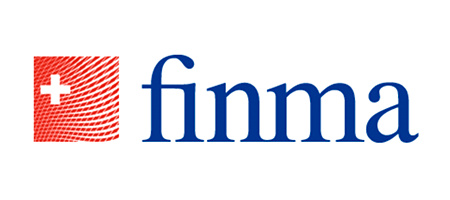 If there’s a country that has the strongest association with financial services, it has to be Switzerland, the land of alpine views, chocolate, luxury watches, and, most importantly, banks. Thus, it’s only natural that Switzerland has the most reputable - and toughest - financial regulator, the Financial Markets Supervisory Authority (FINMA). This institution has a broader mandate than most regulatory bodies, which includes the supervision of banks, funds, insurance companies, and, of course, Forex brokers. It is also fully independent of any governmental body, allowing FINMA to exercise its functions far more efficiently, especially when it comes to protecting domestic and foreign investors.
If there’s a country that has the strongest association with financial services, it has to be Switzerland, the land of alpine views, chocolate, luxury watches, and, most importantly, banks. Thus, it’s only natural that Switzerland has the most reputable - and toughest - financial regulator, the Financial Markets Supervisory Authority (FINMA). This institution has a broader mandate than most regulatory bodies, which includes the supervision of banks, funds, insurance companies, and, of course, Forex brokers. It is also fully independent of any governmental body, allowing FINMA to exercise its functions far more efficiently, especially when it comes to protecting domestic and foreign investors.
It is widely recognized that FINMA has a well-established regulatory framework for Forex, ensuring that this particular market functions like a Breitling watch.
One of the main benefits of using a FINMA-regulated Forex broker is that such brokers can enjoy all the benefits of the Swiss banking system, such as high levels of confidentiality and stability. In turn, brokers pledge to maintain the highest level of transparency and provide impeccable trading conditions.
Forex Brokers regulated by Swiss Financial Markets Supervisory Authority (FINMA):
Advantages and (very few) disadvantages of trading with Class A brokers
Clearly, there aren't many arguments against signing up with a Forex broker regulated by any of the bodies listed above. For example, the main disadvantage of signing up with a Forex broker regulated by the NFA is that the said regulator limits the leverage to 50:1, which may not suit experienced traders who strive to maximize their profits through the use of borrowed funds.
That’s about it - everything else falls into the “pros” basket: the demand for brokers’ full transparency, the safety of funds, and the full adherence to regulations. You might consider brokers that aren’t regulated by NFA, JFSA, or FINMA only if your place of residence falls outside their jurisdictions.
Class B regulators - the optimal balance
The Financial Conduct Authority (FCA)
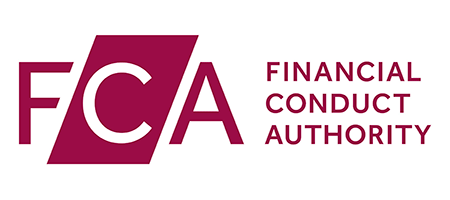 Let us go as far as saying that providers that are licensed and regulated by the UK's Financial Conduct Authority (FCA) immediately fall into the category of trusted Forex brokers. In nearly ten years of its existence, the FCA cemented the reputation of being one of the most rigorous regulators in the industry. This independent regulatory body was established in 2013 as a successor of the Financial Services Authority (FSA). The functions and responsibilities of the FCA are outlined in the Financial Services and Markets Act 2000, which says the authority’s general duty is to:
Let us go as far as saying that providers that are licensed and regulated by the UK's Financial Conduct Authority (FCA) immediately fall into the category of trusted Forex brokers. In nearly ten years of its existence, the FCA cemented the reputation of being one of the most rigorous regulators in the industry. This independent regulatory body was established in 2013 as a successor of the Financial Services Authority (FSA). The functions and responsibilities of the FCA are outlined in the Financial Services and Markets Act 2000, which says the authority’s general duty is to:
- Ensure the integrity of Britain’s financial system;
- Maintain a fair competitive environment;
- Protect investors, including Forex traders, against scams, brokers’ bankruptcies, and other types of financial misconduct.
The regulator is independent of the UK government, but it does answer to the head of the Treasury. The FCA also operates within the framework of the Markets in Financial Instruments Directive 2014 (MiFID), the EU’s main legal act for financial markets, the FCA-regulated Forex brokers are fully eligible for doing business in the European Union to the benefit of investors and traders.
The FCA isn’t as strict as Class A regulators in terms of operating capital requirement, which starts here at £1 million. However, the British regulator takes the matter of customer funds protection even more seriously than its American counterpart. Forex brokers must adhere to the Financial Services Compensation Scheme (FSCS) which guarantees compensation of £30,000, and up to £50,000 if a broker goes bust. Forex-brokers.org has analyzed all compensation schemes offered by top Forex regulators and concluded that the FCA is the most investor-oriented and generous in that regard.
Moreover, this regulator is merciless towards manipulative Forex brokers that create a conflict of interest with the customers, for instance, by deliberately creating the opposing position with an intent to liquidate the customers’ highly leveraged ones. In that and many other cases of misconduct, the fraudulent broker would get its license revoked permanently. Therefore, if you want to rest assured that your funds are well-protected and that the broker won’t be doing any funny business behind your back, choose the ones regulated by the FCA. Forex-brokers.org highly recommends FXTM, FxPro, HFM, FXCM, ActivTrades, and Vantage.
Forex Brokers regulated by The Financial Conduct Authority (FCA):
Australian Securities and Investments Commission (ASIC)
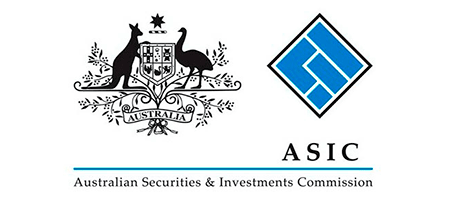 On the other side of the world, in the Land Down Under, there’s another top-tier Forex regulator called the Australian Securities and Investments Commission (ASIC) that sustains the integrity of financial markets. The ASIC was established in the early 90s as the main enforcer of regulatory standards in the Pacific region, with a primary focus on stock markets which later expanded to Forex. The Australian regulator utilizes one of the most extensive legal frameworks that includes provisions from the Corporations Act, the National Consumer Protection Act, and the Insurance Contracts Act. This suggests a particular emphasis on customer protection, which makes the ASIC philosophically similar to the FSA.
On the other side of the world, in the Land Down Under, there’s another top-tier Forex regulator called the Australian Securities and Investments Commission (ASIC) that sustains the integrity of financial markets. The ASIC was established in the early 90s as the main enforcer of regulatory standards in the Pacific region, with a primary focus on stock markets which later expanded to Forex. The Australian regulator utilizes one of the most extensive legal frameworks that includes provisions from the Corporations Act, the National Consumer Protection Act, and the Insurance Contracts Act. This suggests a particular emphasis on customer protection, which makes the ASIC philosophically similar to the FSA.
The regulator demands that the broker which seeks a license must have an opening capital of no less than $1 million, be willing to open segregated accounts with top Australian banks, and have a proper compensation program in place. Apart from ensuring the maximum protection of funds, the ASIC also strives to educate investors about financial markets through programs like MoneySmart, as well as ways to avoid being scammed. In a way, ASIC’s approach can be characterized as “regulate and educate” which is unique even among top Forex regulators.
The preparedness to investigate even the slightest hint of fraud is another thing that sets the ASIC apart from other financial regulators. Forex-brokers.org knows for sure that the Australian regulator thoroughly investigates most tip-offs and sets an example by severely punishing the violators. Due to its independent nature, the ASIC is immune to pressure from governmental bodies and financial whales, which allows for avoiding conflicts of interest.
Its advantage over Class A regulators and the FCA lies in the higher allowed leverage for major Forex pairs, which amounts to 30:1. In early 2022, the ASIC extended this leverage cap until May 2027, along with negative balance protection and close-out rules, thus bringing the general legal framework more in tune with that of the European Union. These measures have already proven their efficiency since the number of negative balance instances was reduced by 87% over the last year alone. Therefore, registering with ASIC-regulated Forex brokers like XM, FXCM, MultiBank Group, or Vantage is one of the best decisions one can make at the beginning of his path in Forex trading, or when changing the broker.
Forex Brokers regulated by Australian Securities and Investments Commission (ASIC):
The positives and the negatives of Class B regulators
Much like with Class A regulators, there aren’t many negatives that can be highlighted with regard to the FCA and the ASIC. It might be a bit easier for Forex brokers to obtain the license from these regulators, but it certainly doesn’t translate to lax oversight; and if the broker is caught doing something shady, the punishment will be swift and severe. Such an uncompromising attitude towards fraud and manipulations guarantees the integrity of Forex brokers operating under the wings of the FCA and the ASIC as well as other Class B regulators.
Additionally, you must have noticed that these regulators are placing special emphasis on safeguarding traders’ funds and providing compensation in case things go south. Lastly, Class B brokers, especially the FCA, cover many jurisdictions to the great benefit of retail Forex traders as well as the market in general.
Class C regulators - the blend of liberal approach and strictness
Cyprus Securities and Exchange Commission (CySEC)
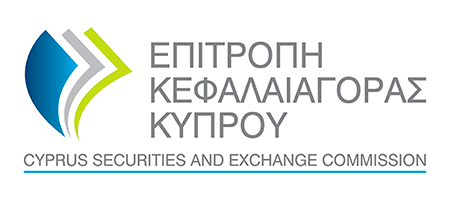 The Cyprus-based financial regulator has come a long way before becoming one of the most popular broker license issuers in the industry. Before 2004, when Cyprus was admitted to the European Union, CySEC had been a fertile ground for financial fraud due to many loopholes in regulations and the willingness of authorities to “look the other way.” This was done to maintain the appeal for businesses and capital holders that preferred to keep things in the gray, despite the hampering effect on CySEC’s reputation. Back in those days, we would have qualified CySEC as a Class D or lower regulator.
The Cyprus-based financial regulator has come a long way before becoming one of the most popular broker license issuers in the industry. Before 2004, when Cyprus was admitted to the European Union, CySEC had been a fertile ground for financial fraud due to many loopholes in regulations and the willingness of authorities to “look the other way.” This was done to maintain the appeal for businesses and capital holders that preferred to keep things in the gray, despite the hampering effect on CySEC’s reputation. Back in those days, we would have qualified CySEC as a Class D or lower regulator.
However, the situation has changed for the better after accession to the EU as CySEC was forced to adopt a much stricter regulatory framework and abandon its dubious practices. Now that CySEC has to adhere to MiFID’s guidelines and EU’s regulatory standards, we bumped up its status to Class C regulators, the one for Forex brokers that maintain an acceptable degree of integrity while providing higher leverage than the upper-class brokers. On top of that, CySEC allows Forex brokers to provide a much broader range of trading instruments that include binary options, spread betting, and hedging. The regulator itself allows for the maximum leverage of 1:30, but many Forex brokers circumvent this restriction by combining CySEC’s license with the licenses from offshore regulators, thus upping the leverage options to 1:500 (FXCC, FP Markets, Just2Trade) and even 1:1000 (FTXM, XM, FxPro, HFM, Pure Market, Exness). So if you have enough competence and risk tolerance to trade Forex with high leverage, CySEC-regulated brokers could be the right solution. However, we at forex-brokers.org will always warn rookie Forex traders against using high leverage because that’s a very slippery slope.
Also, it is worth mentioning that CySEC isn’t particularly great when it comes to compensation schemes. In case a broker declares insolvency or goes out of business due to any other reason, the regulator pledges to compensate the maximum of $20,000, which corresponds to the account size of a minor retail Forex trader.
And in case of any disputes, this regulator will remain on the sidelines, letting the court handle an issue, which obviously can turn into a bureaucratic drag. All in all, CySEC is the kind of Forex regulator that tries to maintain a thin balance between security, compliance with rules, and lucrative options for profit-making. If that’s something you find appealing, by all means sign up with one of the CySEC-regulated Forex brokers listed above.
Forex Brokers regulated by Cyprus Securities and Exchange Commission (CySEC):
Malta Financial Services Authority (MFSA)
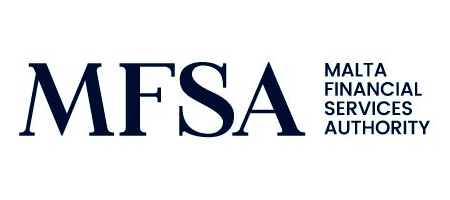 Only a 2-hour flight apart, the island of Malta is home to another Class C regulator that bears similarities as well as differences with the one in Cyprus. The Malta Financial Services Authority (MFSA) is a financial regulatory body established in 1988 that oversees financial markets in the jurisdiction deemed as a rising financial center of the EU. Contrary to CySEC, the Maltese regulator has never put its reputation into question by flirting with shady brokers. Compliance with the rules has always been the number one priority for MFSA, especially after the adoption of the MiFID derivative and inclusion into the European Economic Area (EEA). The reason why we have put MFSA in Class C lies in the fact that this regulator isn’t particularly open to licensing foreign brokers, which creates a lot of limitations for non-EU Forex traders.
Only a 2-hour flight apart, the island of Malta is home to another Class C regulator that bears similarities as well as differences with the one in Cyprus. The Malta Financial Services Authority (MFSA) is a financial regulatory body established in 1988 that oversees financial markets in the jurisdiction deemed as a rising financial center of the EU. Contrary to CySEC, the Maltese regulator has never put its reputation into question by flirting with shady brokers. Compliance with the rules has always been the number one priority for MFSA, especially after the adoption of the MiFID derivative and inclusion into the European Economic Area (EEA). The reason why we have put MFSA in Class C lies in the fact that this regulator isn’t particularly open to licensing foreign brokers, which creates a lot of limitations for non-EU Forex traders.
However, when it comes to “strictness,” MFSA is definitely on par with the Class A regulators listed above. For instance, the Maltese financial regulation doesn’t allow Forex brokers to act as market makers, demanding that all transactions are to be conducted through an interbank exchange. In addition, the brokers can establish business partnerships only with MFSA-approved entities. The regulator puts maximum effort into consumer protection and education, investigating even the smallest instances of financial misconduct and ensuring the depositor/investor compensation of up to $100,000.
Forex Brokers regulated by Malta Financial Services Authority (MFSA):
Dubai Financial Services Authority (DFSA)
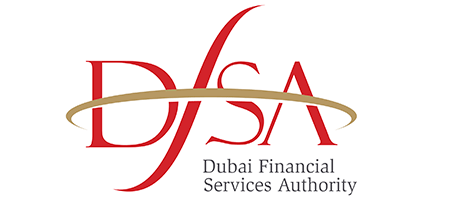 Over the past couple of decades, Dubai became synonymous with business innovation and financial prosperity, with the Dubai International Financial Center (DIFC) being the place of attraction for all kinds of businesses, including Forex brokers. With so many companies trying to set up shop in this prestigious location, the government of the UAE had to establish a financial watchdog, the Dubai Financial Services Authority (DFSA). Despite the fact that the DFSA operates in a religiously conservative country, its regulatory standards and structure are designed after those of the NFA and the CFTC, both being Class A regulators.
Over the past couple of decades, Dubai became synonymous with business innovation and financial prosperity, with the Dubai International Financial Center (DIFC) being the place of attraction for all kinds of businesses, including Forex brokers. With so many companies trying to set up shop in this prestigious location, the government of the UAE had to establish a financial watchdog, the Dubai Financial Services Authority (DFSA). Despite the fact that the DFSA operates in a religiously conservative country, its regulatory standards and structure are designed after those of the NFA and the CFTC, both being Class A regulators.
However, the Dubai financial regulator imposes some of its own restrictions, which include leverage no higher than 1:50, the prohibition of swap deals for Islamic traders, and the requirement for retail Forex traders to have an account balance of no less than $1 million in order to be able to set up the account with DFSA-regulated brokers.
It’s also worth noting that the DFSA and the DIFC run a separate court for complaint resolution, which operates outside the state’s judicial system. HFM is a top Forex broker regulated by the Dubai Financial Services Authority.
Forex Brokers regulated by Dubai Financial Services Authority (DFSA):
The pros and cons of Class C regulators
With the exception of CySEC, Class C regulators seem to be overly focused on dealing with Forex brokers from respective jurisdictions, while foreign ones may have a hard time getting the corresponding license. On the plus side, the regulators of this class allow for higher leverage while maintaining good compensation schemes, especially the MFSA. The majority of top Forex brokers have a license from CySEC due to its liberal approach towards leverage and exotic trading instruments.
Class D regulators - the risks and benefits of tax havens
International Financial Services Commission of Belize (IFSC)
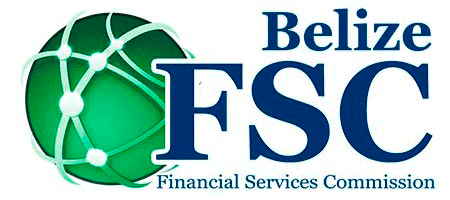 Established in 1999, the IFSC is one of the most popular offshore destinations for Forex brokers. Before explaining the functions of IFSC, which aren't that different from any other regulator on this list, allow us to explain the reasons why so many top Forex brokers are seeking its license. Tax benefits constitute the most important reason why Forex brokers and traders alike are flocking to Belize and other offshore jurisdictions. It is especially relevant for traders who either want to grow their accounts quickly or trade with large volumes from the get-go. In any case, trading with offshore brokers allows for keeping practically all profits to themselves, not worrying about the taxman dipping his hands into their pockets.
Established in 1999, the IFSC is one of the most popular offshore destinations for Forex brokers. Before explaining the functions of IFSC, which aren't that different from any other regulator on this list, allow us to explain the reasons why so many top Forex brokers are seeking its license. Tax benefits constitute the most important reason why Forex brokers and traders alike are flocking to Belize and other offshore jurisdictions. It is especially relevant for traders who either want to grow their accounts quickly or trade with large volumes from the get-go. In any case, trading with offshore brokers allows for keeping practically all profits to themselves, not worrying about the taxman dipping his hands into their pockets.
Offshore brokers afford access to a greater number of foreign currency markets and allow for the highest leverage in the industry. Privacy is also a key factor that tips the scale in favor of offshore brokers. Many Forex traders are keen on keeping their personal data and earnings away from prying eyes, so they sign up with offshore brokers that are regulated by IFSC or the other offshore regulator.
The main functions of IFSC are to grant licenses, oversee the operations of Forex brokers, and impose sanctions and penalties on those to violate the Ministry of Belize Securities and International Financial Services Commission Act. Same as traders, Forex brokers seek the IFSC license for taxation reasons as it allows them to avoid paying tax on earnings. Also, the regulator has low requirements ($500,000) regarding the minimum operating capital, which also explains its popularity among Forex brokers. The IFSC demands monthly reports from licensed brokers, but as practice shows, this regulator could turn a blind eye to minor violations. FXTM is a top Forex broker regulated by the International Financial Services Commission of Belize.
Forex Brokers regulated by International Financial Services Commission of Belize (IFSC):
Financial Services Authority Seychelles (FSA)
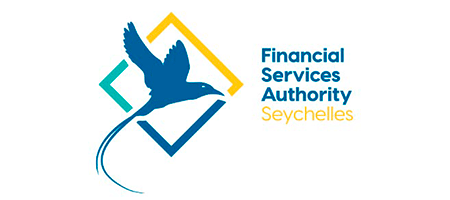 For many Forex brokers, Seychelles is an even more preferable offshore jurisdiction than Belize. In addition to similar tax benefits, privacy rules, and relaxed regulatory demands, the Financial Services Authority of Seychelles (FSA) has the lowest capital requirements of all brokers on our list, which is a mere $50,000. Needless to say that Forex brokers of all calibers are bombarding the FSA with license applications - most of them are getting the approvals quite easily.
For many Forex brokers, Seychelles is an even more preferable offshore jurisdiction than Belize. In addition to similar tax benefits, privacy rules, and relaxed regulatory demands, the Financial Services Authority of Seychelles (FSA) has the lowest capital requirements of all brokers on our list, which is a mere $50,000. Needless to say that Forex brokers of all calibers are bombarding the FSA with license applications - most of them are getting the approvals quite easily.
The Seychelles-based regulator imposes minimal limits on brokers’ marketing and operational strategies, meaning that they are free to offer huge no-deposit or welcome bonuses and run lucrative promos and contests, which stricter regulators wouldn’t have allowed. Super low operational costs allow FSA-regulated Forex brokers to lure customers by promising zero fees and ultra-high leverage.
Nevertheless, the FSA is rather strict when it comes to following international anti-money laundering (AML) rules. Tixee, AdroFx, and LBLV are top Forex brokers regulated by the FSA.
Forex Brokers regulated by Financial Services Authority Seychelles (FSA):
The risks of trading with offshore Forex brokers
We have outlined the benefits of trading with Forex brokers that answer to offshore regulators, now let’s talk about the downsides. As already pointed out, both IFSC and FSA can be reluctant when it comes to punishing the violators of their own rules. It’s fair to say that the number of scams coming from these tax havens was reduced greatly over the past decade thanks to the improved legal framework, but they haven’t been eradicated completely, while minor offenders may get off with a slap on the wrist. The small capital requirements also represent the cause for concern - it means that most offshore brokers wouldn’t be able to compensate big retail traders even a small fraction of their capital in case of trouble. To summarize, offshore regulators and Forex brokers that hold their licenses are like a double-edged sword where a plethora of perks and benefits are intertwined with significant risks.
Bottom line
One of the main conclusions that you should have made from this comprehensive review of the best Forex regulators is that they play a major role in determining the reputation of a given broker and your willingness to create an account and trust your capital to this provider. As with many things in life, here you will also have to compromise between total reliability and the prospects of larger profits.
If you want to play it safe, Class A and Class B regulators will keep your funds secure and brokers in check, thus guaranteeing you a good night’s sleep every night. Class C regulators, especially CySEC, would perhaps be the compromise between reliability and profit-making opportunities. Offshore regulators and their brokers aren’t as controversial as they were before, but the risk of being scammed is significantly higher than with higher-class regulators. That is of course if you choose to go with a broker that we didn’t recommend. You can play it however you like and still win, and that’s the beauty of Forex.







